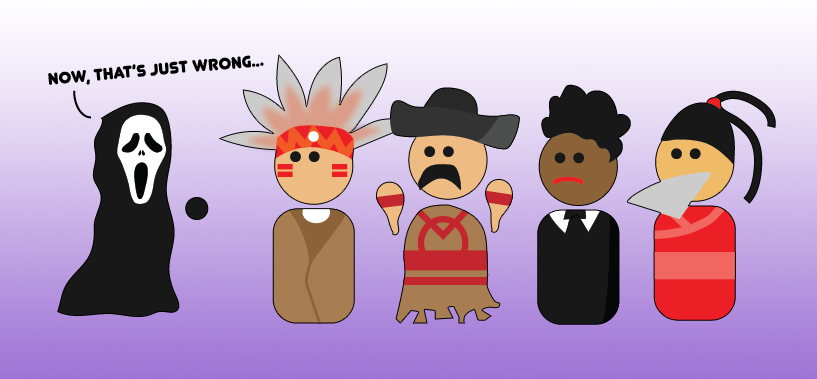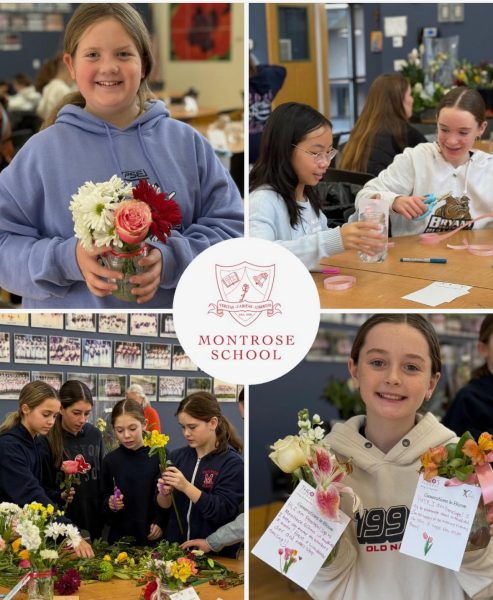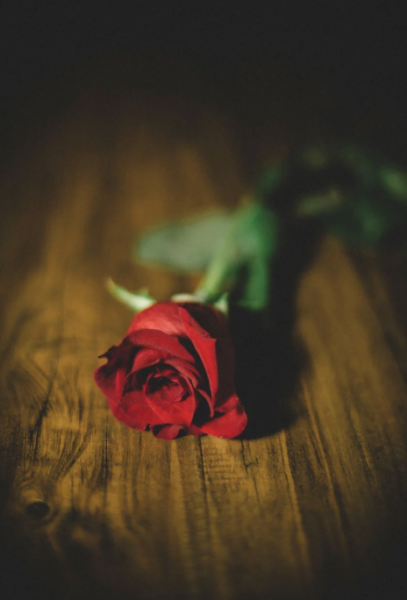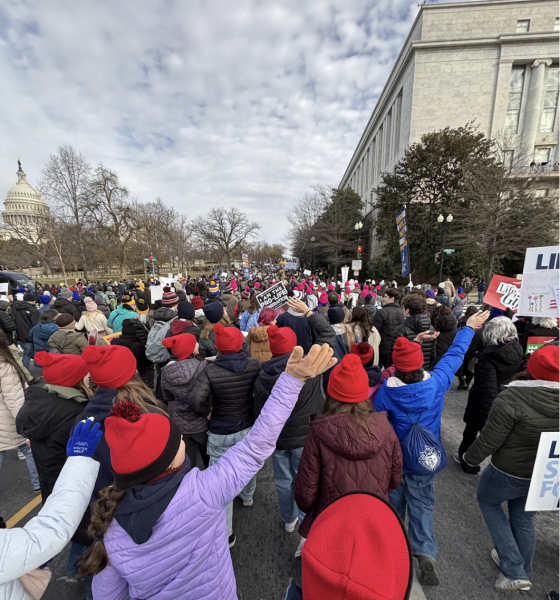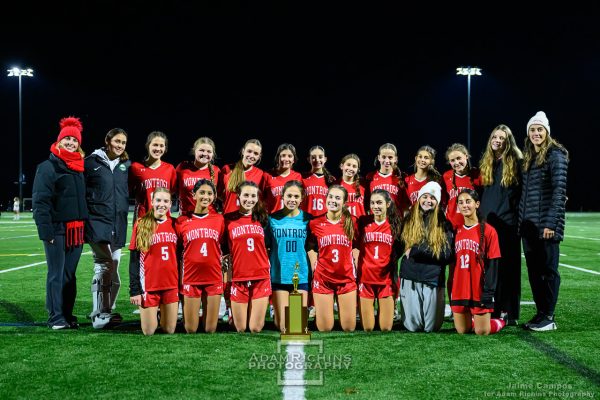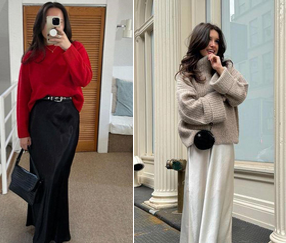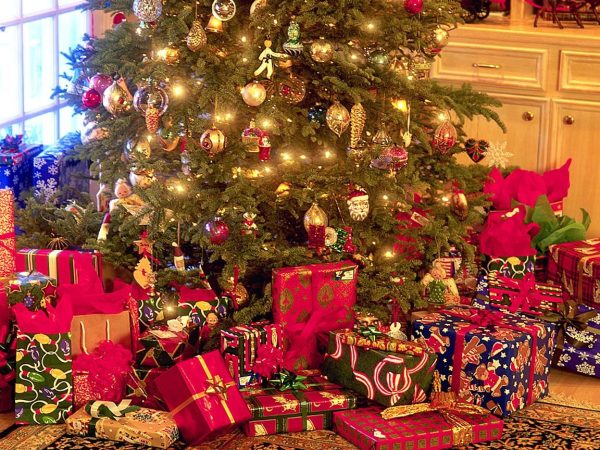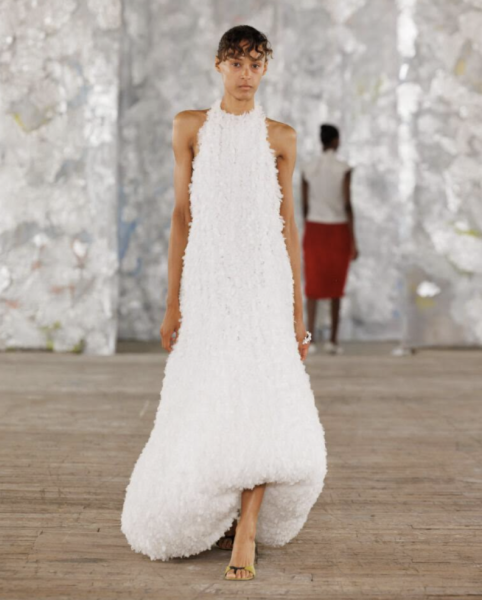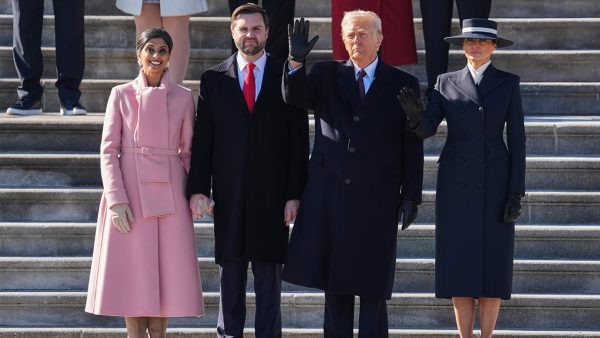Culture is Not a Costume: The Halloween Costume Industry and Cultural Appropriation
Credit: Jimmy Williams, Oakland Post
Fashion editor Chloe Stefani emphasizes that wearing a Halloween costume doesn’t need to mean marginalizing minorities and other cultures.
Halloween is my favorite holiday. All year, I look forward to the day that the weather gets colder and Spirit Halloween opens its doors. In addition to watching scary movies and stuffing your face with Reese’s Pumpkins, one of the many things that makes Halloween so exciting is how you can choose to be anything you want to be. But where is the right place to draw the line, and how is it that we have allowed these costume companies to sell offensive, culturally-appropriating costumes to clientele for so long?
What is Cultural Appropriation?
Cultural appropriation is defined as: “The unacknowledged or inappropriate adoption of customs, practices, ideas, etc, of one people or society, by members of another, and typically more dominant people or society.” To sum up, those in a more powerful position by ethnicity, race or economic status adopting the culture of the less powerful, without demonstrating respect for the other culture. An example of this, (and also the topic of this article), is demonstrated by the many Halloween costume brands who sell costumes with the intended purpose for a buyer from a different (and often more powerful culture) to dress up as another ethnicity for the night, and thereby reducing the culture to a symbolic costume.
Now, what is the effect of dressing up as another culture when you yourself are not part of that same culture? One organization, committed to exposing the harmful effects of such blind practices emphasized: “Using identities and cultures as costumes or jokes has become so normalized in our society that we see things like Indigenous folks being used as mascots, headdresses being worn en-mass by white folks at festivals, black and brown face still being prevalent.” The normalization they discuss had been put into our society in the early 19th century with the introduction of minstrel shows, or caricatured performances done by white performers in blackface or brownface, in order to reenact racial stereotypes with “comical” intentions. With this in mind, dressing up as another culture for Halloween, whether it is intended or not, risks perpetuating stereotypes.
Harmful Cultural Inaccuracy
Jessica Hickam from makeitgrateful.com in her article Culturally Appropriating Costumes You Should Avoid This Halloween stated: “To dress up as Pocahontas or any Native American princess ignores the history of oppression and minimizes the ceremonial significance of their wardrobe, which has ultimately marginalized and stereotyped this culture.” Valerie Reynoso of Teen Vogue, a woman of Indigenous culture herself, said: “every time I see a Native costume, it makes me feel disrespected and devalued. Native peoples have suffered through centuries of colonialism, exploitation, erasure, and condemnation — to then be romanticized and whitewashed in mainstream Western culture adds insult to enduring injury.” And Valerie is just one of many individuals of Indigenous cultures who feel this way. Writer Star Diavolikis of The Observer, in her article My Culture is Not Your Costume, said: “To see my culture being dismissed enough to the point of just being a Halloween costume is harmful to not only Native Americans, but also those who are uneducated on how this is cultural appropriation and inappropriate.” She added: “Nobody ever hears or knows about these facts when a girl is pretending to do a rain dance at a college dorm party. This is because our regalia is treated as a costume instead of what it actually is: part of a fully fledged culture…(not) a costume that portrays the Native American culture in a sexualized manner while also portraying us as silly, dumb or as savages.” These costumes serve as an unfortunate reminder of how prominent Indigenous stereotypes are in Western culture, even today. If you don’t believe that statement, take a look at this Adult Native American Costume for sale on Amazon to anybody with one quick internet search. But be warned, the costume is extremely sexualized, inaccurate, and insensitive to a beautiful culture that has been disrespected and Westernized for the sake of a Halloween costume.
Sadly, you can basically find inaccurate and offensive costumes for most other non-white cultures as well. (**I’m going to include images for these costumes too, so again if you think this is something that will upset you, I do not recommend clicking**). Take this Geisha Costume on PartyCity.com, for (a very sad) example. Unsurprisingly, the costume is worn by a caucasian model, is (again) portrayed inaccurately and is sexualized. Sabrina Barr of Independent.co.uk, while describing a similar costume in her article Fashion Nova Sparks Controversy With Racially Insensitive Geisha Costume, writes, “What makes Fashion Nova’s costume so racially insensitive is that it feeds into a stereotype of Asian women being sexual objects and temptresses for men’s (almost always white men) desires,” a spokesperson told Metro.co.uk.” Like the costume we discussed previously, this costume inaccurately portrays Japanese culture and professions ( a geisha or, “giegi” in western Japan, is an entertainer) and contributes to the harmful sexualization so many Asian Americans have to face. Barr then goes on to describe how the weight of cultural appropriation is especially important to understand in the US, “considering the way in which Japanese people have been treated in the country in the past.” And, when you take a second to think about her reasoning, it makes perfect sense. Marginalizing a culture for so many years and then treating it like it’s just a silly, insignificant costume just seems like salt in the wound.
Now, I think that there’s something to be said about American culture normalizing practices that are not okay for young kids. When you grow up with something that has never been questioned, you’re the first one to get defensive when you hear opposing ideas. Obviously, young kids aren’t at fault when they want to dress up as Princess Jasmine for Halloween. They just want to dress up as their favorite Disney princess. However, what messages do the costume companies that produce these costumes send to kids when they sell costumes that promote cultural stereotypes, inaccuracy, and even black and brownface? For example, a few years ago when Disney’s Moana first came out, every little girl wanted to be Moana for Halloween. Auli’i Carvalho, the Polynesian actress who voiced Moana, even came out publicly with a statement: “I think it’s absolutely appropriate. It’s done in the spirit of love and for Disney and for the little ones who just want to dress up as their favorite heroine, I’m all for it.” However, people had more to say about the Maui costume that also came out that year, and rightfully so. The costume featured a tattoo shirt, however it was tinted brown to darken the color of a white wearer’s skin. This sparked outrage because it arguably contributed to the normalization of brownface in American culture. When we think of how normalized these practices are, it becomes clear how we have allowed costume companies to get away with this for so long: familiarity. When you’ve been exposed for your entire life, starting at a very young age, to culturally appropriating costumes being worn by white people, you may think that it is okay, even though it isn’t. So, do we have to cancel every kid who dressed up as Maui that year? Not necessarily. Instead we should take a stand against the companies and adults who told them that it was okay in the first place. If we fail to do that, there could be another generation of people just like the ones who normalized these practices.
I would like to reiterate that this article’s topic is not based on my own experience, but merely something I’ve observed about American culture, and the experiences of others. I know I will never understand what it feels like to have my whiteness appropriated, disrespected, and disregarded; however, I hope this article spreads awareness of this very concerning issue and helps amplify the voices of those who have spoken out about and been affected by cultural appropriation, especially because of Halloween. To finish this article, I leave you with probably the most obvious statement I have ever written: It’s possible to have a fun Halloween without borrowing from and appropriating cultures that are not your own. If you want more information on this topic, I strongly recommend articles by verywellmind.com, and usatoday.com, as well as the articles I provided links to above because they can help you if you are confused or, like me, want to educate yourself about this topic.
Chloe Stefani ’24, Fashion and News Editor
24cstefani@montroseschool.org

